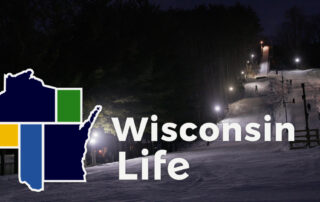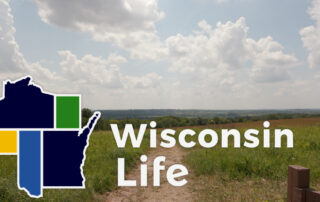At the Hmong Wausau Festival Angela Fitzgerald catches up with the chairman of the festival Yee Leng Xiong to find out all there is to do, and eat, at the festival. Angela enjoys food, sport tournaments and dance competitions while discussing the importance of this festival to the Hmong community with Xiong. We also share a variety of stories from across Wisconsin.
First, we hear the buzzing of bees mixing with the songs of the Psalms as Charlie Koenen shares the story of the Beevangelists. Koenen started the Beevangelists in conjunction with the Redeemer Lutheran Church in downtown Milwaukee as a way of spreading the word of bees. The Beevangelists is a non-profit organization that helps spread awareness of the importance of bees and other pollinators around the state of Wisconsin. For the last several years Koenen has installed and maintained a beehive on the roof of the Redeemer Lutheran Church, as well as several other locations around Milwaukee.
We then run through the streets of Eau Claire with Alex Rongstad. It was a little over a year into the COVID-19 pandemic when he had the idea to run every single street in Eau Claire before the end of the year, and, with only a little over six months left in the year, he began running. While he was optimistic, there were some who doubted that he would be able to take on the approximately 500 miles of streets in Eau Claire. As he went on, he would continue to garner more and more support from his community.
After weaving through the streets of Eau Claire we find Maly Vang weaving hand made macrame art. Vang found herself making macrame after being dissatisfied with her traditional 9-5 job. She began to learn how to make macrame from YouTube tutorial videos, and this blossomed into a business for Vang. She started malyMADE, her own online store where she sells her art across the country. Her work is inspired by her Hmong community and the art they create.
Finally, we find a pair of farmers who are trying to turn back time on a centuries old farm. Heather Mishefske and Chad Rykal have been working to restore the land that was once occupied by a very traditional farm. Going from the traditional corn and soybean crop rotation to something much more sustainable was just one step in their process. They also had to take five 20-yard dumpsters worth of garbage off the land as it was filled with junk. There may still be a long way to go, but they are optimistic about the future of this piece of land.



